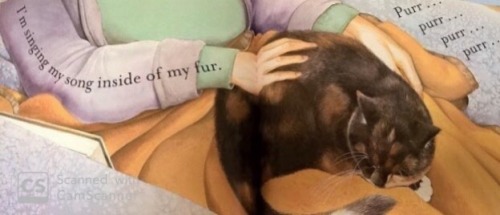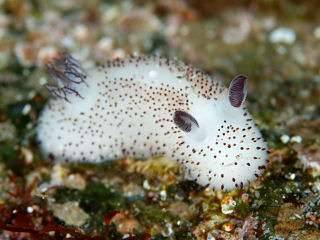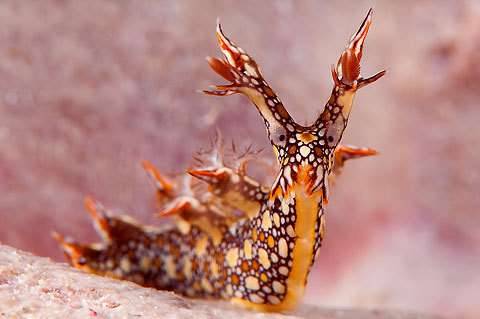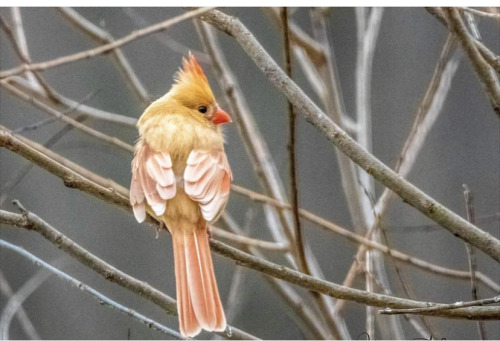
nights/hollow | he/they/it | alterhuman sideblog of nightbody | icon from antiqueanimals
223 posts
Latest Posts by shadedhollow - Page 2
Having the weirdest combination of phantom shifts tonight. It's a mix of mule and jaguar. The face is more of a mix, but the ears are seperate. I have four ears (six counting the physical human ears).
Quick sketch trying to show what's going on... this is very strange.

re: cat paratype
since i discovered the alterhuman community in 2015, i've known i was cat-hearted. for the same amount of time, i've questioned a cat therio/kintype on and off.
for most of that time, i've dismissed the 'type. i feel none of the instincts or desires of a cat, such as prey drive or territoriality. clearly, i would think, i'm confusing my feelings surrounding my heart-type for kinfeels. since other-heartedness isn't as well-known or talked about as otherkinity, surely it'd be easy to mistake one for the other.
the reasoning made sense, and i'd let the subject go - and yet, this cat-shaped question would return, again and again.
this last year, i discovered my identity as a mimic - a creature whose shape is influenced by its environment, the people and animals it spends time around, and the media it digests. because i was raised by humans, my physical body is human, and my envisaged shape is usually humanoid, i consider myself a human mimic. as in, not a human, but something in a human shape.
so when the cat-shaped question pawed at my door again, i was finally able to put things together: i'm a cat mimic.
it makes so much sense, really. for as long as i can remember, there's been a cat in my family's house. the first cat i bonded with as a child slept with me almost every night. cats were my first favorite animal, the first animal i really studied and sought information about. when i started teaching myself to draw, cats were one of my first subjects. of course i would mimic them!
this explains my lack of feline instincts, and how my shape never truly matches - i'm a mimic in a cat's shape, and not a cat proper.
ahh, it's just so nice to finally figure this out. that cat-shaped question has a collar with a name tag now, and happily curls up in my bed.
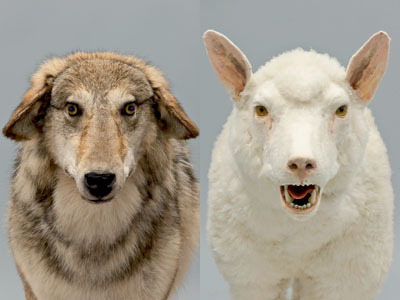
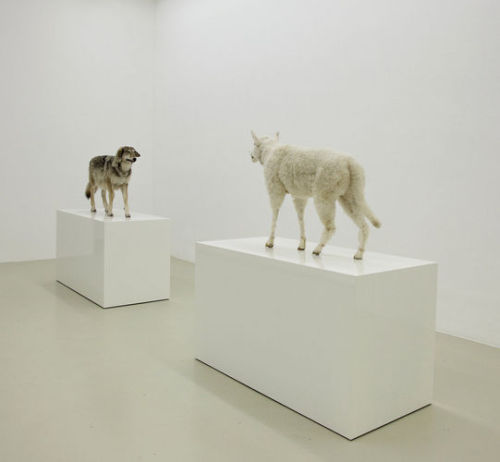
Timm Ulrichs, “Wolf im Schafspelz – Schaf im Wolfspelz: Ein Verwandlungskunststück (Wolf in Sheep’s Clothing - Sheep in Wolf’s Clothing: A conversation piece)” (2005/10): Ulrichs demonstrates a sharp wit with this smart arrangement of objects. Here he presents a literal translation of the Biblical idiom of the “wolf in sheep’s clothing” and pits across its opposite, the inverted metaphor “sheep in wolf’s clothing.” It’s interesting to witness how simply changing the exterior of each stuffed animal seems to change the physiology and the expressiveness of the animal. In this case, the skeletal interior seems to preserve the animal’s inner “essence,” since the sheep in wolf’s clothing looks like a docile wolf, while the wolf in sheep’s clothing looks like a predator sheep.
did anyone get like phantom shifts (or any at all) when they where younger and didn't know what they were or really question them until you learned about being nonhuman/alter human? a LOT in my childhood makes sense now learning I'm not a human
Werewolves & Chronic Illness
Let's talk about chronic illness, and how it relates to my experience of being alterhuman.
I was born defective. I won't specify what conditions I have exactly, for privacy purposes, but they primarily cause pain and fatigue. I have had them for my entire life, and will likely have them until I die. I had them when I first started exhibiting alterhuman behaviours as a child. I had them still when I figured out what I was 2 years ago.
The way I view my identity as a werewolf has been deeply shaped by my relationship to chronic illness. The depictions of being a werewolf that I am most drawn to, and the ones that I myself write, are characterised by pain and body horror. Where the transformation takes some kind of toll on the body.
My relationship to this body I inhabit has been ruled by pain and limitation. The idea of a seamless and easy physical transformation is unthinkable to me. When life within flesh has always meant compromise, why would this be any different?
When I was young, I saw the film “Harry Potter and the Prisoner of Azkaban”. The werewolf in this film is effectively chronically ill BECAUSE of lycanthropy. Their symptoms worsen around the full moon. Their transformation near the end of the film has stayed with me forever. The creative team chose to depict a gaunt, almost miserable looking creature so far from any depiction of a werewolf I had seen before or since. It was the first time I truly saw myself in a creature like that.
I took one look at that dishevelled, long limbed, scarred creature, and instantly felt a connection.
My condition requires regular hospital treatment. Without it, my body would eventually destroy itself. The timeframe for this treatment? Roughly once a month. Sometimes lining up as the week before the full moon. Another parallel between the cycles of being a werewolf, and the cycle of being chronically ill. Just like my bestial instincts, my physical health waxes and wanes. Too much stress or physical activity, and my body has to rest. Or hibernate.
Which brings me to my other point. My existence as a werewolf, and as a chronically ill human, don't just mirror each other. They overlap at times. Am I emotionally riled up because of the full moon approaching, or because my condition is due for treatment? Is the pain I feel in my bones a need to get down on all fours and stretch, or the side effect of my body's dysfunction? My illness and my alterhumanity sometimes speak the same language. Given the choice, I prefer to see them as complementary.
Two sides of the same coin.
If I was born chronically ill, then perhaps I was also born a werewolf. In the battle of nature versus nurture, perhaps alterhumanity was simply my destiny.
y'all really need to learn to source the photos you use, goddamn
Noemata: Background, definition, and use
noema (plural noemata) - noun From Ancient Greek νόημα (nóēma, “concept”, “idea”, “perception”, “thought”).
1. (philosophy) The perceived as it is perceived 2. (philosophy) That which is perceived in the noesis/noema duality 3. (rhetoric) An obscure speech or a speech that only yields meaning upon detailed reflection⁽¹⁾ 4. (otherkin community slang) Knowledge about oneself, one’s kintype, or the life of one’s kintype
———————————–
Almost from the moment I joined the community I lacked a word to describe the distinct images, knowledge, and ‘memories’ that would pop into my head in relation to my psychological kintypes. I was (and still am) very adamant that these kintypes were not past lives, and yet I had many experiences that were similar enough that I, at the time, begrudgingly referred to them as my “kin memories”. Upon sharing my reluctance around using this terminology, I found that many others – both psychological, spiritual, both, and neither – were experiencing the same lexical gap. So when I set out to find a word to bridge that gap, my intentions were to make it as broad and inclusive as physically possible.
It took a day or two of intense googling, before I found the word ‘noema’, which is a very rare word in daily speech, and is almost exclusively reserved for one specific branch of philosophy. It has several overlapping definitions (the three main ones listed above, followed by the community’s use), but the one that particularly caught my attention was: “The perceived as it is perceived.”
Now, fair warning, I took a philosophy class in high school that I haven’t been able to shut up about since, so when I saw that rather cryptic definition, it was of course love at first sight. How I’ve come to interpret “the perceived as perceived” after reading a some analyses of Husserl’s philosophy, on which it is based, is as a subjective truth - a noema is something that is real, not because we can prove its existence by scientific measurements, but which is simply real because a person experiences it as such. When discussing noemata in the context of memory-like experiences in the otherkin community, it is thus irrelevant if they’re “real” in any objective way, and the only thing that matters is that the individual experiences them as real.
———————————–
To define is to limit, so with the purpose of the word in mind (to be useful for everyone who felt the lexical gap) I had to be very careful with my phrasing. In my very first attempt at a definition I described a noema as “something in between a memory and an intuition, knowledge that is inherent but has been forgotten/has to be recalled.”⁽²⁾ This is not a definition that I stand by now as I find it too limiting and too focused on memory-like noemata.
In my next post⁽³⁾ about the topic, I didn’t attempt to define it so much as clarify a few things: A noema is not a “kin memory with a psychological explanation”, nor does it have to have any of the qualia of a memory. Any knowledge that has been gained about one’s kintype can be called a noema, including detailed episodic memories and knowledge as simply as your kintype’s eye color or the layout of their house.
In my final attempt to define it, when prompted to because Kiera wanted to add it to their dictionary, I described it as “inherent knowledge you have about your kintype. This may include memories, things you experience as memories but likely aren’t, or general knowledge about your looks, life, habits, or surroundings. Noemata may have a psychological or spiritual basis, may be a mix of the two, or may have unknown origins.”⁽⁴⁾ This is a definition I stand by to this day, though it still prompts some further questions and discussions.
———————————–
For starters, why did I include the word ‘inherent’ in that definition? It’s a word I’m very fond of, and you’ll often see it pop up in my long-form writings. I use it to mean ‘essential’, 'core’, and sometimes 'permanent’ or 'natural’/'instinctual’. In other words, for something to qualify as a noema it has to be ingrained with your kintype, one way or another - so things you only know because it was taught to you (for example, statistical facts about an animal species) would not count as noemata, but things you discovered on your own would. Even here we run into grey areas, though, because if a piece of knowledge was revealed to you in, say, a dream, would that count as a teaching or a discovery? Or would knowledge you didn’t discover through introspection, but instead felt compelled to seek out and study, count? I can’t say, and I think it’s up to the individual to decide if they want to call something like that a noema or not.
Next, I feel it important to mention that the examples listed in that definition (“memories, things you experience as memories but likely aren’t, or general knowledge about your looks, life, habits, or surroundings”) are only examples. There are other ways to experience noemata, for example (again, only examples and not the be-all-end-all of the word’s coverage) as precognition, visions of a parallel life, feelings about certain things or characters, and confabulations. However, there is one tentative exception: I have not created the word with consciously created scenarios in mind. If you intentionally decide that your kintype has red hair (instead of going off a gut feeling that they have red hair), I would not count that as a noema. Again, with room for grey areas such as OCkin, who have created a character and later come to realize that that character is their kintype.
Though the word has mostly found use as a stand-in for 'memory’ among psychological otherkin, that by no means covers all the ways in which it can be used, and in the past year I have seen it used more and more frequently by nonhumans and alterhumans regardless of the cause of their identity. My intention with introducing the word to the community was always to fix the lexical gap, and as such everyone who feels that gap can use the words 'noema’ and 'noemata’.
———————————–
Sources: 1. https://en.wiktionary.org/wiki/noema#English 2. https://aestherians.tumblr.com/post/181836451574/ 3. https://aestherians.tumblr.com/post/190929635719/ 4. https://www.beyondhumanity.net/alterhuman-dictionary/dictionary-n

I know I'm made of clay that's worn / blinded by imperfect form (creature - half•alive)
a drawing i did a few days ago that im extremely proud of. its about nonhumanity of course, about how a person is not their body, but how they see themselves. it represents my three kintypes: dragon, enderman and unicorn, and how phantom shifts can make them overlap sometimes over my physical body.
edit - i based my drawing on this one by @mossymenagerieart! go look at his art its really cool
Hi this is a positivity post regarding alterhuman diet dysphoria versus actual biology
(unless you already know these things)
To herbivore nonhumans who don't want to/can't do a vegan or vegetarian diet but feel dysphoric about being able to digest meat:
Herbivorous animals are not unable to digest meat.
Animal matter is actually easier for a body to process than plant matter, and herbivorous species need very complex digestive systems in order to support their lifestyles. This is why cows have four stomachs; why horses practically go into critical system failure if they get even a little bit sick. Animals that live mostly by grazing actually still do need nutrients that carnivores and omnivores get through their natural diets, which is why farming supply stores sell salt licks for animals. In the wild herbivores will quite often find ways to sneak some meat into their diets by eating bugs or small vertebrates, if you didn't already know about the fun fact of deer eating baby birds. "Obligate herbivore" meaning an animal that can ONLY physically digest plants is not a real ecological term the way "obligate carnivore" meaning animal that can ONLY physically digest meat is, though you might see it in other usages (i.e., referring to an animal that relies on a plant-based diet for all of its nutrients).
If a wild deer was given access to human society, they would probably not opt for veganism for connection with their true species; they would more likely appreciate having a way to get sodium so easily. This isn't to shame anyone who does choose a vegan/vegetarian diet for species euphoria reasons, but more to reassure folks who can't, you aren't less of an herbivore.
To carnivore nonhumans who feel dysphoric that their body can't digest raw meat like wild carnivores can:
It can!
The reason you don't want to be eating raw meat like a wolf or stoat or monitor lizard is because you will get sick or you will contract a parasite, which might sound like just a different reason to feel disconnected from your species, but here's the main two things:
1. The actuality is that wild wolves and stoats and monitor lizards DO get sick and contract parasites. This is often how wolves and stoats and monitor lizards die in the wild and why ones in captivity, being fed parasite-free meat and having illnesses treated, live longer. There are raw meats you can eat safely, you just have to know where they're sourced from and that they're guaranteed not to have risks! That's why sushi is a thing, and why people say you can technically eat raw cut (not ground) beef but not pork or chicken. Cooked meat is also often tastier and easier for the body to process (cit.: Grug et al. 780,000 BCE) so that's why humans have loved their medium-well steak since they came up with it. And 2. wild predators are "able to eat raw meat" mostly because they killed it, so it's fresh and hasn't been sitting around able to pick up bacteria, the way raw meat you get at a grocery store would have. This is why a lot of prey animals have a "play dead" defense mechanism: most predators do not want to eat something that's already dead, because it might get them sick.
If a wild owl was given access to human society, they would probably not desire only the rawest of meats for connection with their true species; they would more likely appreciate having access to food that had all the pathogens cleaned and/or scorched out of it.

More on our bonnethead sharks! These sharks are in the same family as hammerheads but they are much much smaller. Our largest female is about as big as they get, around 3ft long. They are the only known species of omnivorous shark.
sidenote: i refer to the faun 'type in the plural rather than singular ("my fauns").
would you call a singular tree a forest? of course not. likewise, you'd never see a lone faun.
it's hard to describe the consciousness of the fauns. it's alien to a human mind.
do you know about aspen trees? most of them grow in clonal colonies, meaning that all the individual trees come from the same roots. that's the closest comparison i can think of to the fauns.
all this to say, it feels incorrect to refer to my faun 'type in the singular. it's just not how my fauns work.
i've had a creeping feeling that my faun kintype is actually a theriomythic type, and looking into faun art on this here webbed site i think i've confirmed it.
depictions of fauns (modern depictions, anyhow) always project a level of sapience that doesn't line up with my noemata. my fauns are not humans with goat legs - they're a different animal entirely.
tool use is more on par with corvids than humans. language is simple. we mimic humans the same way humans mimic cats, with no knowledge of deeper meaning. we don't wear clothes.
so! i'm recategorizing the fauns as theriomythic type, rather than kintype.












